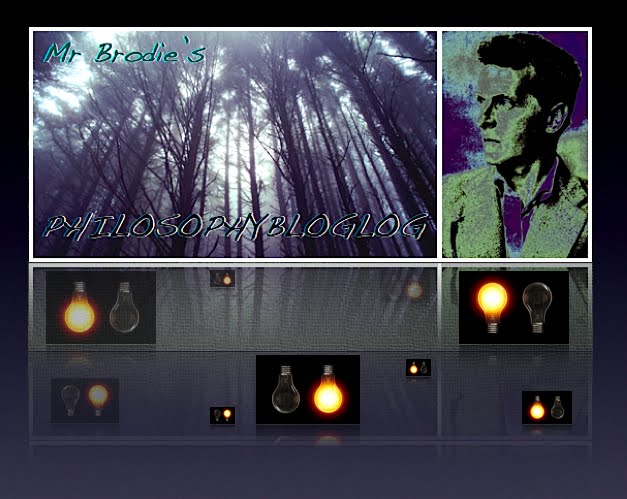To what extent do conceptual schemes threaten to cut the link between knowledge and reality? Discuss.
1. Explain idea of conceptual scheme
2. Explain Wittgenstein’s idea about how language use creates meaning - the meaning’s in the language use not the object ( maybe contrast Locke)
3. Explain how this might be understood as threatening the link between
4. Now do a similar job for Kant! ☺
Definition of conceptual scheme: A conceptual scheme, is a network of concepts and propositions by which we organise, describe, and explain our experience.
Also:
Explain and illustrate (give examples) two ways in which it is possible to have a priori knowledge.
Anticipate the following explanations:
Use this MARK SCHEME to put an answer together (You're not expected to know ALL this stuff.
Candidates may associate a priori knowledge with rationalism and there may be references to Plato, Descartes, Kant and/or to the (classical) empiricist view that such knowledge is trivial. There is likely to be some description of a priori knowledge as knowledge held before, or independently of, experience (or, perhaps, justifiable independently of experience) and this may be further developed in terms of logical necessity, innate knowledge, analytic statements and necessary truths (there is likely to be some blurring here). Accept any two of the following:
• Intuition: rational insight, grasping the truth of a proposition, ‘seeing’ it to be true by ‘the light of reason’ (or, possibly, having a clear and distinct idea that...). This might be connected to logically necessary truths;
•
Through understanding the meanings of terms in analytic statements which are true by definition (or in which the concept of the predicate is contained within the subject). This may also be linked to necessity;
• There may also be references to synthetic a priori knowledge (Kant and mathematics) and/or to contingent a priori knowledge (Kripke);
• Deduction or demonstration: deriving further conclusions from intuited or necessarily true premises through valid argumentation;
• Innate knowledge: knowledge not learned through either sense experience or intuition and deduction (Plato, learning as remembering).
Illustrative examples may be drawn from the literature, although this may depend on which points are made:
• The laws of logic: eg whatever is green all over can’t also be red all over;
• Descartes’ clear and distinct ideas – which might be linked to innate ideas, intuition or demonstration – (SEE THE CHART I GAVE YOU THAT YOU ALREADY HAD)
that, eg God can be known to exist a priori, the internal angles of a triangle = two right angles, etc;
Hume’s 3 x 5 = half of 30; or, if injustice is defined as the violation of property, where there is no property there can be no injustice;
• Kant’s view that the truths of mathematics – eg that 7 + 5 = 12 – are a priori, necessary and synthetic (and, possibly, that moral principles are a priori);
• Plato’s view that mathematical truths are recalled (with some prompting) – the slave boy in the Meno or an equivalent example eg of how beauty is grasped;
• The claim (cf Kripke) that, eg ‘a gobbit = 1000 bits’ is a priori and contingent; • Various truths claimed for all logically possible worlds or any other proposition which illustrates a point
(expect references to bachelors and spinsters).
NB no marks are available for critical/evaluative accounts although relevant knowledge and understanding in such accounts should be rewarded.























No comments:
Post a Comment